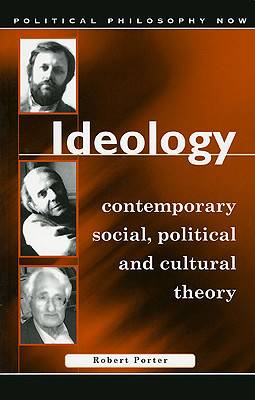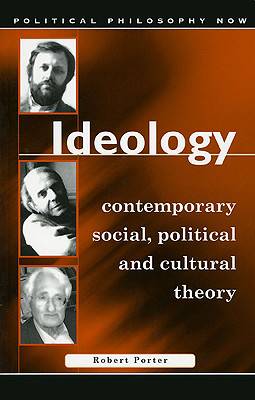
- Afhalen na 1 uur in een winkel met voorraad
- Gratis thuislevering in België vanaf € 30
- Ruim aanbod met 7 miljoen producten
- Afhalen na 1 uur in een winkel met voorraad
- Gratis thuislevering in België vanaf € 30
- Ruim aanbod met 7 miljoen producten
Omschrijving
Ideology draws on the social, political and cultural theory of Jurgen Habermas, Gilles Deleuze and Slavoj Zizek in order to explore the possibility of developing a 'critical conception of ideology'. The book is concerned with two main themes: the relationship of ideology to the 'real' and the relationship between ideology and the 'ethical'.
Although these three writers are often assumed to have little in common, Porter demonstrates a formal homology between them by showing that they all offer an idea of critique that pivots around two central intuitions. Firstly, they insist that a substantive critical distinction can be drawn between the ideological and the real. And, secondly, Habermas, Deleuze and Zizek all offer an image of ideology critique that is importantly grounded on ethical terms.
By engaging, among other things, with Habermas's sociological work on the public sphere, Zizek's forays into popular culture, and Deleuze's analysis of political cinema, Ideology strives to concretely animate how each of these figures provide the critical tools necessary to challenge the kinds of ideological practice that pervade the contemporary social world.
Specificaties
Betrokkenen
- Auteur(s):
- Uitgeverij:
Inhoud
- Aantal bladzijden:
- 166
- Taal:
- Engels
- Reeks:
Eigenschappen
- Productcode (EAN):
- 9780708318652
- Verschijningsdatum:
- 10/03/2006
- Uitvoering:
- Hardcover
- Formaat:
- Genaaid
- Afmetingen:
- 218 mm x 145 mm

Alleen bij Standaard Boekhandel
Beoordelingen
We publiceren alleen reviews die voldoen aan de voorwaarden voor reviews. Bekijk onze voorwaarden voor reviews.











